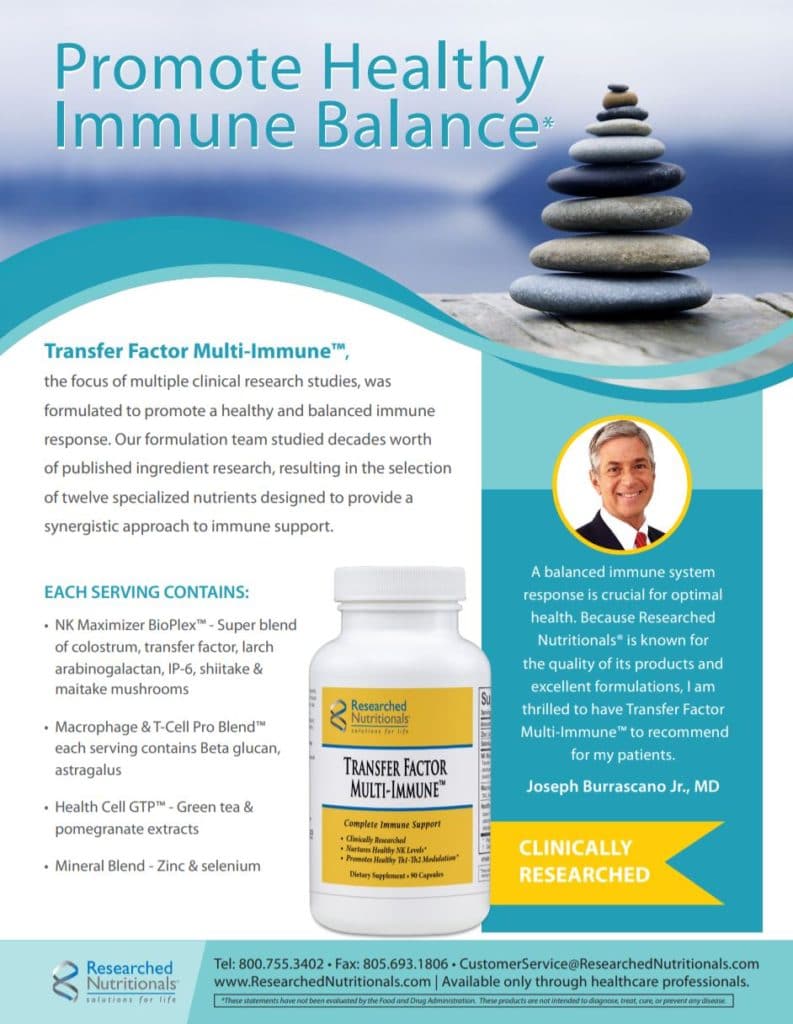by Alan R. Gaby, MD
When I speak at medical conferences, the course director usually provides me a summary of the evaluation forms that attendees filled out to rate the quality of the various presentations. While most of the comments tend to be positive, it is not uncommon for someone to criticize my presentation for citing old and “outdated” research. It is true that I sometimes cite research that is more than 50 years old. However, I would submit that old research is not necessarily outdated research.
“Outdated” is defined by the Collins English Dictionary as “old-fashioned and no longer useful or relevant to modern life.” The belief that old research is outdated depends on the assumption that follow-up studies have been conducted in the modern era. Such is often not the case. Medical history is replete with examples of effective treatments that fell by the wayside because they did not fit into the belief systems or practice styles of the day. Below are examples of treatments that appear to be beneficial in clinical practice, even though they are based only on old research.
Many treasures lay buried
in the archives of the medical library.
Hydrochloric Acid for Chronic Diarrhea

73-year-old, previously healthy woman presented with a three-month history of persistent diarrhea, which had resulted in progressive weight loss. Evaluation by her family doctor had failed to identify a cause, and she had been treated symptomatically with antidiarrheal medication. When she came to see me, questioning revealed that the onset of diarrhea had followed an episode of acute gastroenteritis. It has been reported that acute gastroenteritis sometimes leads to transient hypochlorhydria that can persist for months, and that hypochlorhydria can in some cases cause persistent diarrhea. So, I asked the patient about other symptoms that are commonly associated with hypochlorhydria, such as bloating after meals and a feeling of fullness in the stomach even after a small meal. She reported that these two symptoms had also developed around the same time as the diarrhea.
Based on the clinical picture, the possibility of postinfectious hypochlorhydria was considered. The patient was advised to undertake a therapeutic trial with hydrochloric acid (HCl), in the form of one or two 600-mg capsules of betaine hydrochloride with each meal, depending on the size and the protein content of the meal. She was also told to stop treatment or reduce the dose if it caused heartburn. HCl treatment resulted in immediate improvement in the diarrhea and the other gastrointestinal symptoms. The patient was able to discontinue HCl after two months. During the following year, symptoms recurred occasionally, but again responded to HCl therapy. So, where did I get the idea that chronic diarrhea can be caused by hypochlorhydria and that HCl can be an effective treatment? It came from a study published in the Journal of the American Medical Association in 1902.1
Dilute HCl for the treatment of hypochlorhydria was popular 100 years ago. It was said to be effective not only for various gastrointestinal symptoms, but also for conditions such as chronic urticaria, asthma, and rosacea. However, by the 1940s, the treatment had fallen out of favor, largely on theoretical grounds. It was argued that HCl could not possibly be effective because the dosages used in clinical trials were far below the amount needed to decrease gastric pH to a normal level of 2.0. However, there are two reasons that even a small reduction in gastric pH (to around 4.0) could be beneficial. First, the relationship between gastric pH and pepsin activity appears to be bimodal, with activity peaks at 2.0 and 4.0.2 Second, at a pH around 4.0, gastric juice may kill a wide range of microorganisms, some of which appear to play a role in the pathogenesis of certain medical conditions (e.g., rosacea). Therefore, rejection of the observed clinical benefits of HCl solely on theoretical grounds does not appear to have been justifiable.
Potassium Magnesium Aspartate for Fatigue
In the 1950s, it was hypothesized that fatigue is caused in part by inefficient energy metabolism at the cellular level, and that metabolic efficiency could be increased by enriching the cellular environment with appropriate substrates and cofactors. Among the physiological compounds that were available at the time, the potassium and magnesium salts of aspartic acid (potassium magnesium aspartate) were considered likely candidates to enhance metabolic efficiency. Potassium regulates basic aspects of cellular functioning (i.e., transmembrane electrical potential and intracellular ionic strength) and is also involved in muscle contraction. Magnesium is required for the synthesis of the energy-yielding compound, adenosine triphosphate (ATP), and also enhances potassium transport into cells. Aspartic acid is converted in vivo to oxaloacetate, which is a substrate for the Krebs cycle.
In several randomized controlled trials conducted in the early 1960s, 75-94% of patients experienced an improvement in fatigue after treatment with potassium magnesium aspartate (usually 2 g per day), whereas only 5-27% of patients given placebo improved.3 Adverse effects were uncommon and consisted mainly of mild gastrointestinal symptoms. While this treatment is largely unknown in the mainstream medical community, I have found potassium magnesium aspartate to be one of the most effective treatments for chronic fatigue.
Desiccated Adrenal Cortex for Nausea and Vomiting of
Pregnancy
In the 1930s, a practitioner developed the hypothesis that nausea and vomiting of pregnancy is caused by a temporary, relative adrenocortical insufficiency induced by the stress of pregnancy. This hypothesis was based on observations that the maternal adrenal cortex undergoes hyperplasia during pregnancy, that the earliest signs of adrenocortical insufficiency in experimental animals are anorexia and vomiting, and that the earliest manifestations of Addison’s disease (hypoadrenalism) in humans are anorexia and morning sickness. According to this hypothesis, nausea and vomiting resolve when the compensatory hyperplasia of the adrenal cortex becomes sufficient to meet the increased metabolic demands of pregnancy (around the end of the first trimester).4,5
Based on this hypothesis, eight women with nausea and vomiting of pregnancy were treated with a desiccated adrenal cortex preparation at a dose of 6-18 grains per day. Marked improvement was seen after three-to-four days.5,6 Following this initial report, data were compiled on a total of 202 women with nausea and vomiting of pregnancy who were treated with adrenal cortex preparations by 47 physicians. Of those treated, 86% experienced complete relief or definite improvement. Treatment was usually discontinued by the end of the first trimester.4 Other investigators in the 1940s and 1950s also observed beneficial effects of adrenal cortex extracts.7,8
A midwife who learned about this treatment from my writings began recommending it for clients with nausea and vomiting of pregnancy. Of 20 women who received an adrenal preparation, 18 experienced improvement, usually within 24-48 hours. The product used (Desiccated Adrenal; Standard Process, Inc.; Palmyra, Wisconsin) contained approximately 2 grains (130 mg) of desiccated whole adrenal per tablet. The initial dose was two tablets, three times per day. After improvement occurred, most of the women were able to maintain the improvement by taking one-to-two tablets per day and eating frequent, high-protein meals. The women were usually able to discontinue treatment by the 14th week of gestation.9
Conclusion
It is important to remember that many of the doctors and scientists of yesteryear were smart, wise, and innovative, and that there is much we could learn from them. Many treasures lay buried in the archives of the medical library.
Alan R. Gaby, MD
References
- Soupault M. Treatment of chronic diarrhea with hydrochloric acid. JAMA. 1902;39:55.
- Taylor WH. Proteinases of the stomach in health and disease. Physiol Rev. 1962;42:519-553.
- Gaby AR. Fatigue. In Gaby AR. Nutritional Medicine, Second Edition. Concord, NH, 2017. https:// doctorgaby.com, chapter 329.
- Kemp WN. The vomiting of pregnancy treated as a temporary relative insufficiency of maternal corticoadrenal function. Med Rec. 1934;140:239-41.
- Kemp WN. Hyperemesis gravidarum treated as a temporary adrenal cortex deficiency. Can Med Assoc J. 1933;28:389-91.
- Kemp WN. The treatment of early vomiting of pregnancy with suprarenal cortex: case reports. Endocrinology. 1932;16:434-6.
- Hart BF, et al. Vitamin and endocrine therapy in nausea and vomiting of pregnancy. Am J Obstet Gynecol. 1944;48:251-3.
- Youssef AF, Barsoum GS. Vomiting of pregnancy: the allergic factor. J Obstet Gynaecol Br Commonwealth. 1953;60:388-97.
- Gaby EF. Personal communication, April 19, 2010








